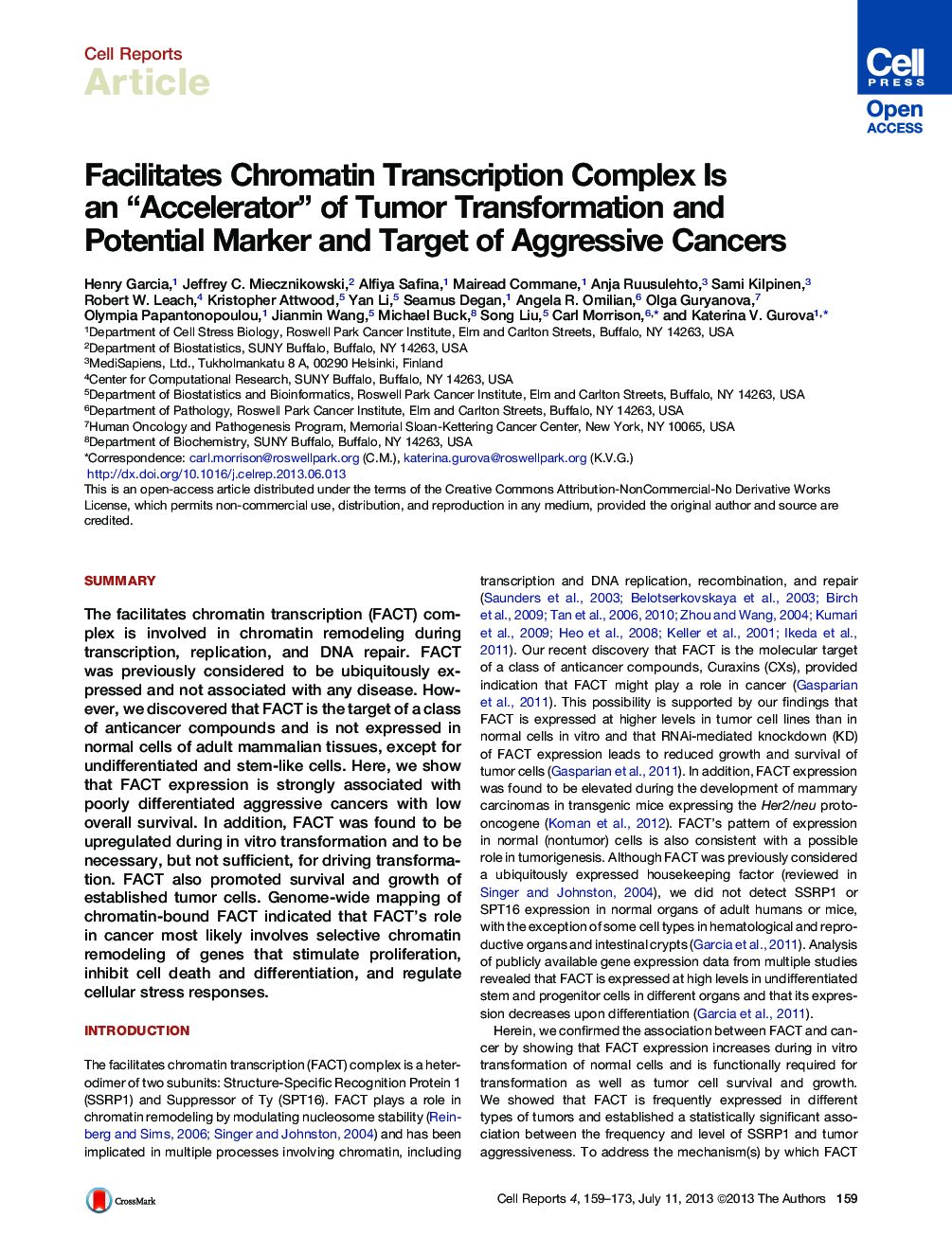| Article ID | Journal | Published Year | Pages | File Type |
|---|---|---|---|---|
| 2040086 | Cell Reports | 2013 | 15 Pages |
•FACT is expressed in aggressive undifferentiated cancers with poor overall survival•FACT increases the efficiency of oncogene-induced transformation•Neoplastic, but not normal, cell growth depends on FACT activity•FACT binds genes that are involved in cancer
SummaryThe facilitates chromatin transcription (FACT) complex is involved in chromatin remodeling during transcription, replication, and DNA repair. FACT was previously considered to be ubiquitously expressed and not associated with any disease. However, we discovered that FACT is the target of a class of anticancer compounds and is not expressed in normal cells of adult mammalian tissues, except for undifferentiated and stem-like cells. Here, we show that FACT expression is strongly associated with poorly differentiated aggressive cancers with low overall survival. In addition, FACT was found to be upregulated during in vitro transformation and to be necessary, but not sufficient, for driving transformation. FACT also promoted survival and growth of established tumor cells. Genome-wide mapping of chromatin-bound FACT indicated that FACT’s role in cancer most likely involves selective chromatin remodeling of genes that stimulate proliferation, inhibit cell death and differentiation, and regulate cellular stress responses.
Graphical AbstractFigure optionsDownload full-size imageDownload as PowerPoint slide
